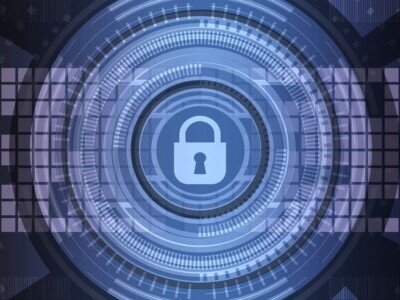With the continued focus towards remote work, the dynamic nature of the marketplace, and the constant technology advancements come a need for top-notch communication. However, this same requirement of constant communication also demands stringent business data security. Fortunately, ERP systems can resolve both of these issues.
Enhancing Communication and Collaboration
In the realm of remote work, where physical distances separate team members, effective communication and collaboration become vital for success. Enterprise Resource Planning (ERP) systems emerge as powerful catalysts in this regard, enhancing the fabric of teamwork among remote teams. By fostering a sense of connection and providing a suite of collaborative features, ERP systems transform the challenges of geographical dispersion into opportunities for seamless interaction.
One of the standout features of ERP systems is their integration of real-time messaging tools. Whether through chat functionalities, instant messaging, or collaborative platforms, ERP systems create a digital space where team members can communicate instantly, irrespective of their physical locations. This real-time connectivity not only mimics the spontaneous interactions that occur in a physical office, but also promotes a sense of immediacy, which is crucial for addressing queries, sharing insights, and maintaining a fluid communication flow within remote teams.
Additionally, ERP systems provide a centralized platform for document sharing and collaboration. Features such as shared document repositories, version control, and collaborative editing tools streamline the collaborative process. This not only ensures that all team members have access to the most updated information, but also facilitates a cohesive workflow and fosters a sense of unity among remote team members.
Effective project management is integral to successful remote collaboration, and ERP systems excel in this domain. These systems typically incorporate robust project management tools that enable teams to plan, track, and manage projects efficiently. From setting milestones to assigning tasks, ERP project management tools provide a holistic view of project progression, enhancing transparency and accountability. This not only keeps remote teams aligned with project goals but also cultivates a shared understanding of individual contributions within the overarching project framework.
ERP systems often feature collaborative workspaces that serve as digital hubs for team activities. Whether it’s hosting virtual meetings, coordinating discussions, or sharing updates, these collaborative workspaces act as the nexus of remote team activities, fostering a sense of unity and purpose.
Collectively, the features embedded in ERP systems contribute to a holistic sense of connection and teamwork among remote employees. The ability to communicate instantly, share documents effortlessly, manage projects collaboratively, and converge within collaborative workspaces builds a cohesive virtual environment that transcends the limitations of physical separation. This not only boosts morale but also cultivates a shared sense of purpose, fostering a strong team culture even in the absence of a shared physical workspace.
Business Data Security in Remote ERP Environments
 With any communication and transfer of business data comes security risk. As the global workforce increasingly embraces remote work, the paramount concern of business data security takes center stage. In this evolving landscape, where employees access critical business information from various locations, the security of sensitive data becomes a focal point for businesses leveraging Enterprise Resource Planning (ERP) systems. Fortunately, ERP includes robust security measures to safeguard sensitive business information in the remote work environment.
With any communication and transfer of business data comes security risk. As the global workforce increasingly embraces remote work, the paramount concern of business data security takes center stage. In this evolving landscape, where employees access critical business information from various locations, the security of sensitive data becomes a focal point for businesses leveraging Enterprise Resource Planning (ERP) systems. Fortunately, ERP includes robust security measures to safeguard sensitive business information in the remote work environment.
The shift to remote work brings with it a host of data security concerns, ranging from the vulnerability of individual devices to potential breaches during data transmission. Remote environments often involve the use of personal devices and varied network connections, creating potential points of vulnerability that demand meticulous attention. Additionally, the collaborative nature of ERP systems, where data is shared and accessed by multiple users, amplifies the importance of securing sensitive information to prevent unauthorized access or data breaches.
ERP systems are designed with an inherent focus on business data security, implementing a multifaceted approach to protect sensitive business information. This includes encryption protocols for data transmission, secure login credentials, and authorization mechanisms to control access levels. Additionally, ERP vendors often incorporate industry-leading encryption standards, ensuring that data is protected both in transit and at rest– whether it resides in the ERP system’s databases or is being transferred between remote users.
ERP systems prioritize access control. To ensure only authorized personnel can access specific data or functionalities within the system, ERP platforms allow administrators to define and enforce access policies. Multi-factor authentication adds an extra layer of security, requiring users to provide additional verification beyond a password, such as a unique code sent to their mobile device, before gaining access to sensitive information.
To further improve security, ERP systems often incorporate audit trail functionalities that track and record user activities within the system. These trails provide a transparent record of who accessed what information and when. In the remote work scenario, audit trails become crucial for monitoring user interactions, detecting any unusual activities, and facilitating timely responses to potential security threats.
Along with keeping systems secure, maintaining compliance with data protection regulations is a cornerstone of ERP system design. ERP vendors align their security measures with global and industry-specific regulations, such as GDPR, HIPAA, or ISO standards. This not only ensures that businesses adhere to legal requirements, but also fosters a culture of trust among clients, partners, and employees. After all, those who interact with the business can be confident that their data is handled with the utmost care and in compliance with prevailing privacy standards.
Even after businesses initially meet security and compliance standards, the dynamic nature of cyber threats requires continuous monitoring and proactive updates. In response, ERP systems typically include mechanisms for monitoring security threats in real-time, enabling immediate responses to potential risks. Regular software updates and patches further fortify the security infrastructure, closing vulnerabilities and ensuring that the ERP system remains resilient against emerging threats.
In summary, ERP systems play a pivotal role in addressing business data security concerns, particularly for the remote work landscape. Through a combination of encryption, access control, audit trails, compliance adherence, and continuous monitoring, ERP systems provide a comprehensive security framework. By adopting these measures, businesses can instill confidence in their remote work environments, assuring stakeholders that sensitive business information is protected with the highest level of diligence and security standards.






